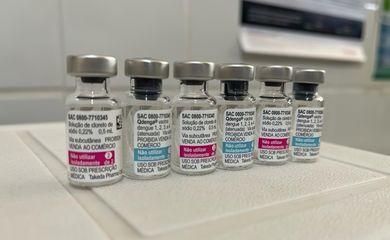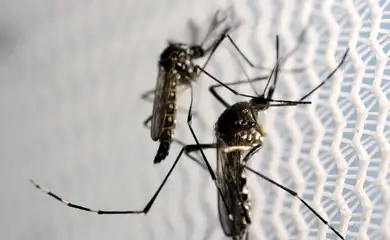First batch of SUS dengue vaccine arrives in Brazil

Brazil has received its first shipment of the dengue vaccine, which will be provided by the country’s public healthcare network, the SUS. The government has obtained 720,000 doses of the Qdenga vaccine from the Japanese laboratory Takeda Pharma, free of charge. The initial vaccinations are scheduled to start in February.

Additionally, the Ministry of Health will receive approximately 600,000 complimentary doses from the manufacturer, bringing the total to 1.32 million. Furthermore, the ministry has purchased 5.2 million doses, with gradual deliveries expected until November.
The combined 6.52 million doses represent the laboratory's total capacity for this year. However, due to this limitation, only slightly more than 3.2 million individuals will be vaccinated in 2024, as the vaccination regimen requires two doses with a minimum interval of 90 days between them.
In 2024, the vaccine will be prioritized for children and adolescents aged 10 to 14, as this age group has exhibited the highest number of dengue-related hospitalizations, second only to the elderly. However, the vaccine has not yet been approved by Brazil’s national drug regulator Anvisa for use in the elderly.
The vaccines will primarily be allocated to large municipalities with high dengue transmission rates over the past decade and to residents of cities with populations exceeding 100,000.
Pioneering initiative
Brazil is the first country to offer the dengue vaccine through a public healthcare system. The Ministry of Health incorporated the vaccine in December 2023, and its inclusion was swiftly approved by the National Commission for the Incorporation of Technologies into the SUS (Conitec).
Anvisa approved the Japanese vaccine in March last year, and it has been available in private clinics since July. The immunizer is suitable for individuals aged 4 to 60 and can prevent dengue regardless of prior exposure to the disease, without requiring a pre-vaccination test.
How it works
The vaccine contains four different serotypes of the dengue virus using attenuated virus technology, meaning it contains modified virus strains that can infect but not cause the disease. It has an effectiveness rate of 80.2 percent against dengue and provides protection for 12 months after the second dose.
Due to its composition with weakened viruses, the vaccine is not recommended for pregnant or nursing women, individuals with certain immunodeficiencies, or those undergoing immunosuppressive treatment. Consequently, Anvisa has not yet approved its use in the elderly due to concerns about their lower immunity levels.



Dê sua opinião sobre a qualidade do conteúdo que você acessou.
Escolha sua manifestação em apenas um clique.
Você será direcionado(a) para o sistema Fala.BR, mas é com a EBC que estará dialogando. O Fala.BR é uma plataforma de comunicação da sociedade com a administração pública, por meio das Ouvidorias.
Sua opinião ajuda a EBC a melhorar os serviços e conteúdos ofertados ao cidadão. Por isso, não se esqueça de incluir na sua mensagem o link do conteúdo alvo de sua manifestação.
Clique aqui para mais informações sobre a Ouvidoria da EBC.










